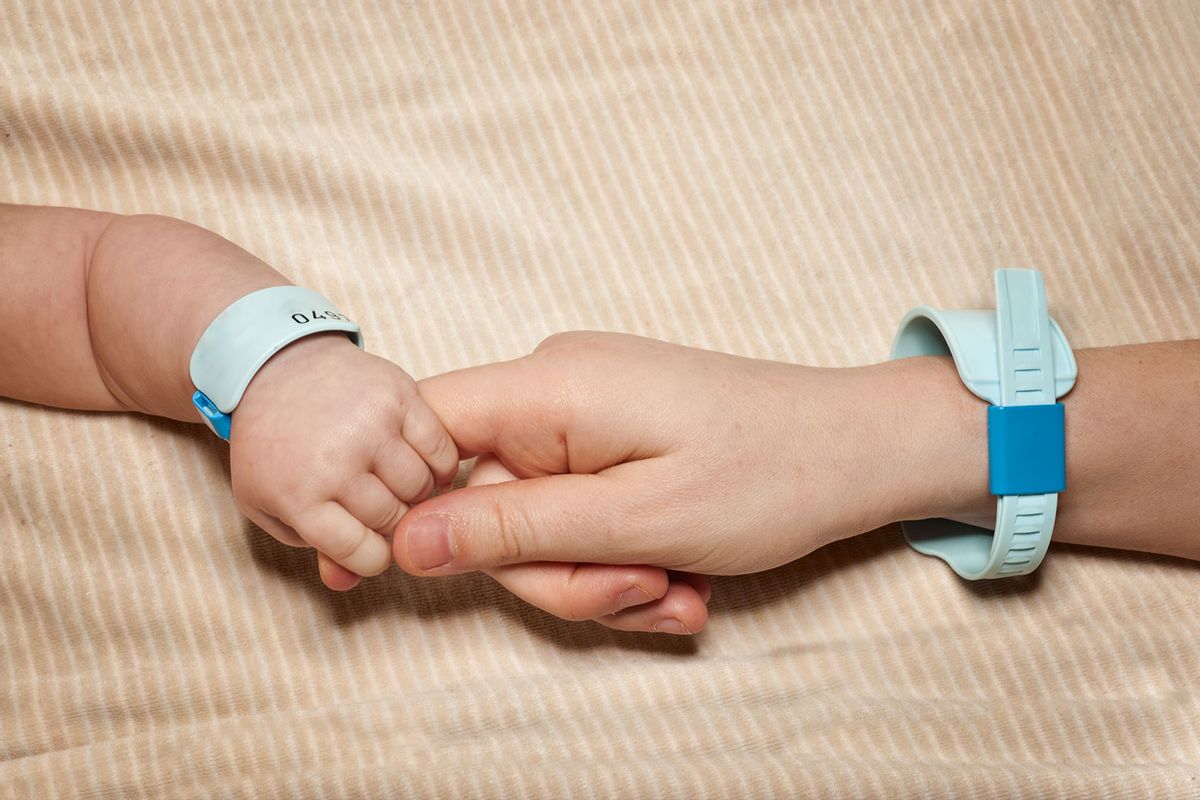Earlier this month, the Centers for Disease Control and Prevention (CDC) released data that brought attention to a horrifying trend: the infant death rate in the U.S. increased by 3 percent in 2022.
The rise in infant mortality marked the first significant increase in about two decades. After the news broke, some people took to social media to spread anti-vaccine misinformation and attempt to fabricate a story that COVID-19 vaccines were to blame. It’s no secret that online pregnancy support groups are rife with vaccine misinformation, and the power of misinformation has real-life impacts. Pregnant women, who are at a higher risk for severe illness, have relatively low vaccination rates against COVID-19.
Yet a new study published in the Proceedings of the National Academy of Sciences adds to ongoing scientific evidence that there are benefits to getting vaccinated against the coronavirus while pregnant, like decreasing the likelihood of a premature birth.
The PNAS study specifically looked at the trend of preterm births in California by comparing the premature birth rates between siblings, meaning the birth of an infant before COVID-19 and a birth of an infant, to the same woman, who later had COVID-19.
"At the population level that means a substantial change with enormous costs for those families, for the healthcare system and for society."
According to the study, the likelihood that a mother with COVID-19 in California would have a premature birth grew from 6.9 percent to 12.3 percent as COVID-19 quickly spread between July to November of 2020. On average during the pandemic, between 2020 and 2023, the risk of preterm births increased by 1.2 percentage points. In an interview with Salon, the researchers behind the study emphasized that even a 1.2 percent increased risk is “very large,” and akin to "almost three weeks of being exposed to intense wildfires."
“At the population level that means a substantial change with enormous costs for those families, for the healthcare system and for society,” co-author of the study, Florencia Torche, a Stanford University sociology professor, told Salon.
In November 2022, March of Dimes reported that preterm births were at an all-time high in the United States. At the time, the nonprofit estimated more than 1 in 10 babies born in the U.S. in 2021 were delivered at least three weeks before what's considered full term at 40 weeks, putting them at a higher risk for physical and intellectual disabilities. Their most recent report published this month showed that rate only declined about 1 percent over the last year, stressing that overall premature births remain a problem nationwide.
But as the data revealed in California, there seemed to be a significant drop in the number of premature births after May 2021 — after vaccines were rolled out.
Want more health and science stories in your inbox? Subscribe to Salon's weekly newsletter Lab Notes.
“The patterns we see also align both with the timing of vaccine rollout and differentially so by the level of vaccine uptake,” Jenna Nobles, a University of Wisconsin–Madison sociology professor, told Salon.
The researchers found that in ZIP codes with high vaccination rates the risk of preterm birth declined faster as opposed to ZIP codes with low vaccination rates. While variants of the SARS-CoV-2 virus likely had something to do with the decline, the researchers said, the fact that there were faster declines in more vaccinated ZIP codes underscored the evidence that vaccines played a role.
“At this point in time, we have no evidence that the variants in some ZIP codes were different from the variants in others in a way that would drive this,” Nobles said. “It's very hard to come up with an alternative explanation for this sharp divergence and patterns after vaccines were rolled out.”
We need your help to stay independent
Researchers say the biggest takeaway from their research is that there are significant benefits to pregnant women getting vaccinated against COVID-19. While a lot of attention around COVID-19 vaccines has gone to vulnerable populations like older adults, the researchers said that their study shows that pregnant women need to be prioritized, too.
The research also adds to previous literature showing that COVID-19 vaccines are safe for pregnant women. Early in the pandemic, the fact that pregnant women were left out of vaccine trials left little to no vaccine safety data, which wasn't always reassuring for many people, acting like fertilizer for the misinformation that followed. But this most recent study is one of several showing that vaccines are safe for pregnant women, and could save them from having adverse birth outcomes like a premature birth.
“Here, we find evidence that there are very strong, important and consequential adverse effects of avoiding vaccination,” Nobles said. “Vaccines are important and likely prevented thousands of preterm births in the United States.”



Shares